Chicken is a pretty easy food to like, if you’re a meat eater. It can be made to suit almost any taste, and it’s grown remarkably cheap in my lifetime. The much quoted “chicken in every pot” promise made by – well, it turns out to be Henry IV of France (1553-1610) – suggests it was once a far more exotic food than we make it out to be today.
As usual, it’s a question of getting what you pay for. If you want to eat cheap and easy fast-food chicken strips or nuggets, you may be aware just by looking at them – assuming that you are familiar with what chicken meat looks like that these are certainly not made from strips of meat; rather, from a lot of re-formed chicken bits (mostly skin and fat) surrounded by a lot of salty batter.
If you buy skinless, boneless chicken breasts, or ready-to-cook products, read the label: is there a mention of “seasoning” among the ingredients? If so, you might well be paying for, in essence, salty water which plumps the meat up, adding weight that it will lose when this oozes out during cooking. All quite legal: Canadian Food Inspection guidelines allow it. And the Americans do it, as does Britain and the rest of the EU.
It’s not just chicken that is “seasoned” in this way: our guidelines allow any kind of meat to be injected with flavoured water. But in its industrialized state, chicken breast in particular is so lacking in flavour and texture that it needs something – anything – to try to make it remotely palatable. And if that’s what you get used to eating, that’s what you’re going to think chicken is. Someone told me recently about a colleague who doesn’t much like to cook, so buys those whole rotisserie chickens for the family; but none of them likes anything but white meat, so once they’ve stripped that off, they chuck the rest of the carcass.
And I’ve met people on my dog-walks who buy fresh chicken breasts to feed to their dogs. Indeed, I think Anton’s previous owner, if her departing instruction is to be believed, fed him this way as well.
Honestly. Do we deserve to eat chicken? If it’s only to provide cheap food for the white meat eaters and dog-cosseters that we subject all those miserable birds to short, sad lives, then we don’t deserve our plucky friends.
However, should you wish to right some wrongs and rear your own, wouldn’t it be lovely to do so in one of these darling Eglus? You can meet some other chicken lovers in this sweet documentary, Natural History of the Chicken, which is available (in 6 parts) on Youtube.
And if you’re in Victoria, you could come to the next meeting of the BC Sustainable Energy Association, Burnside Gorge Community Assn., 471 Cecelia Road, off Jutland Rd., 7-9pm, where we’ll have a talk about meat and methane from Dr. Peter Carter, of of the Canadian Association of Physicians for the Environment:
Getting to Zero Carbon: What’s Meat Got To Do With It?
Not only is the industrialized livestock industry one of the biggest emitters of potent greenhouse gases (methane and nitrous oxide as well as CO2) in the world, but
refraining from eating meat is the easiest and quickest way for individuals and families to reduce their carbon footprints on the way to the new age of renewable energy and zero carbon. Dr. Carter will focus on the methane part of the meat equation, since research shows its importance in potential runaway global heating.
And I imagine we will be referred to the UN’s report (also cited by Mark Bittman, in Food Matters), Livestock’s Long Shadow.
Let me in closing refer you to this fine poem, Chicken Pig, by Jennifer Michael Hecht.
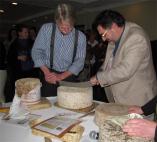
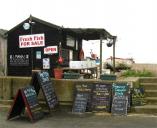

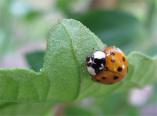


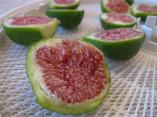

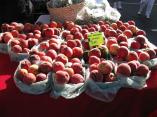

0 Responses to Wicked chicken; meat and methane